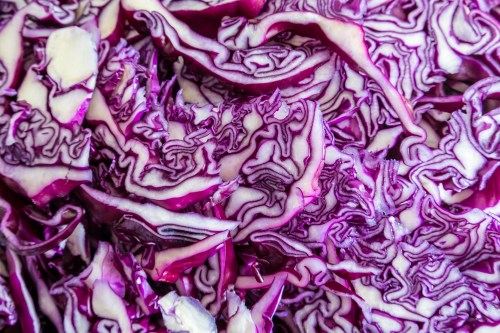Our editors independently select these products. Making a purchase through our links may earn Well+Good a commission
If you live in the American South, okra is one vegetable that’s found in abundance—often served deliciously steaming hot straight from the frying pan. Less familiar with it? Okra is a green flowering plant with edible seed pods. Originally, it was cultivated in Ethiopia and ancient Egypt. From there, it spread through North Africa and the Middle East, eventually making its way to the U.S. through settlers and enslaved people.
Experts in This Article
integrative registered dietitian and nutritionist
While many are drawn to okra for its taste—mildly earthy with more depth and crispness the longer it gets cooked—what may not be as apparent with each bite is its many health benefits. “Okra is especially good for the gut,” says Nour Zibdeh, RD, a registered dietitian and author of The Complete Acid Reflux Diet Plan. Here, she explains exactly what the health benefits of okra are—including the especially noteworthy gut health perks. Plus, get tips for cooking okra and some delicious recipes to try.
Okra nutrition facts
Most of the benefits of okra (more on those in a minute!) can be easily explained by the plant’s impressive nutrition profile. In each serving, you’re getting a decent dose of fiber, a little bit of protein, plus a ton of potassium, vitamin A, and even a respectable amount of vitamin C. Get the full breakdown below.
Raw okra nutrients per 100-gram serving:
- Protein: 2 grams
- Carbohydrates: 7 grams
- Fiber: 3 grams
- Sugar: 2 grams
- Magnesium: 57 milligrams
- Calcium: 82 milligrams
- Folate: 60 micrograms
- Potassium: 300 milligrams
- Sodium: 7 milligrams
- Vitamin A: 716 microunits
- Vitamin C: 23 milligrams
- Vitamin K: 32 micrograms
- Vitamin B6: <1 milligram
7 health benefits of okra
1. It contains gut-healthy fiber
Let’s get into the big one right away. All vegetables contain fiber (the key nutrient for keeping the digestive system functioning properly) and okra is no exception. The veggie has three grams of fiber per cup. But that’s not the only reason Zibdeh says it’s good for the gut. “Okra can take on a slippery texture; this substance actually helps coat the lining of the gut when you eat it,” she explains.
According to Zibdeh, it’s super important that the lining of the gut stay intact. Otherwise, harmful pathogens can make their way into the bloodstream; this is often referred to as leaky gut.
2. It’s a super source of vitamin A
One serving of okra has almost all the vitamin A you need for an entire day. (It packs 716 microunits per cup; the recommended daily amount is 700 microunits for adult women (more if you’re pregnant or breastfeeding) and 900 microunits for men. “[Vitamin A] is good for both eye health and the immune system,” Zibdeh says. So if you’re staring at a computer all day, definitely keep okra in mind as a good veggie to work into more of your meals.
3. It may help mitigate IBS symptoms
Many of Zibdeh’s clients have irritable bowel syndrome (IBS), and Zibdeh says that often, when someone is dealing with the symptoms of that on a regular basis, they are hesitant to eat fiber-rich foods. “Okra is a great vegetable for people with this hesitancy because it doesn’t have fermentable fiber [aka soluble fiber], which can be an irritant to people with IBS,” she says. So if cruciferous veggies like cauliflower and Brussels sprouts are causing some gut issues for you, try upping your okra intake until a registered dietitian can help get you back to eating a wider range of veggies.
4. It’s beneficial for bone health
Besides being good for the gut, eating okra will also benefit your bones. This is because it has calcium, specifically 82 milligrams per cup. You want to aim for 1,000 milligrams of calcium a day, so okra likely won’t be your primary source of the nutrient, but every bit helps.
5. It contains iron
Zibdeh says okra also contains iron—a mineral most people only associate with spinach. Okra doesn’t have enough iron considered a primary source of the nutrient (women need to eat at least 18 milligrams per day, and okra has less than 1 gram per one-cup serving), but it’s still noteworthy—especially for people who eat a primarily plant-based diet and need to be extra mindful of their intake. Consuming okra (in addition to other iron-rich foods) can also help prevent an iron deficiency.
6. It’s good for immune health
Whether its the looming arrival of prime flu season or you’re simply trying to give your immune system a boost, is it ever a bad idea to get more vitamin C in your daily routine? Good news, okra has 23 milligrams of vitamin C per one-cup serving. (The recommended daily intake of vitamin C is 75 milligrams for women and 90 milligrams for men.) “This means it’s linked to benefitting the immune system,” Zibdeh says.
7. It’s packed with antioxidants
All fruits and vegetables are high in antioxidants, and Zibdeh says okra is no exception. Antioxidants are what protect the body from free radicals we encounter through the environment. Exposure to these toxins breaks down cell DNA over time. So when you fill up on foods high in antioxidants, you’re helping your body fight these toxins off and protect against chronic inflammation in the process.
Is it better to eat okra raw or cooked?
According to Zibdeh, cooking okra can impact its nutritional value. “Be mindful of the fact that some of the vitamin C is lost when cooking okra, so the actual amount of it you’ll get is lower than what you may think,” she says. This also applies to other nutrients that are sensitive to heat, such as thiamine and folic acid. As such, the less okra is cooked, the more likely its nutritional value will remain intact.
Who should avoid okra?
Aside from the obvious fact that folks who have allergies to okra should avoid the ingredient, there are a few additional groups that should limit consumption. For example, okra contains fructans, a type of carbohydrate that may trigger gastrointestinal symptoms such as gas and irregular bowel movements. Additionally, due to the ingredient’s high vitamin K content, folks on blood thinners should avoid consuming too much okra. So if you have a health condition that doesn’t play nice with fiber or vitamin K, check with your doctor before going all out on the okra at the next cookout.
What is the healthiest way to eat okra?
Looking to reap the benefits of okra? It’s time to learn how to cook it. While okra in the U.S. is typically fried, Zibdeh says the batter and oils can subtract from the health benefits. (Unless you use an air fryer.) Instead, she recommends boiling, steaming, or roasting it. Need some ideas on how to do this in a delicious way? Keep reading for a few recipes to try.
5 delicious okra recipes

1. Bamya (Okra Stew)
Bamya is a traditional Ethiopian dish often made by integrating the okra into a hearty tomato-based stew, with lamb, onion, and carrots. In this recipe by Amira’s Pantry you’ll find there are lots of anti-inflammatory herbs in it too, like cinnamon, cayenne, and bay leaves.
Get the recipe: Bamya (Okra Stew)

2. African-Inspired Okra Soup
Between the okra, spinach, seafood, and meat in this African-inspired okro soup by African Bites, you’re definitely getting a great amount of iron. Recipe creator Imma Adamu also likes to add pumpkin seeds (egusi), which gives the stew another layer of texture. Add a little heat with red pepper flakes and paprika.
Get the recipe: African-Inspired Okro Soup

3. Air Fryer Okra
If you’re looking for a good air fryer okra recipe, this recipe by Biscuits and Burlap is it. The batter is a mixture of eggs, flour, cornmeal, black pepper, and Cajun seasoning. That way, vibrant spice is worked right into every bite. The best part? It only takes 15 minutes to make.
Get the recipe: Air Fryer Okra

4. Baked Okra and Tomatoes
In this recipe by Real Greek Recipes, okra is drizzled with red wine vinegar and baked in the oven with red onion. Then, it’s paired with juicy tomatoes. Finally. a splash of olive oil, a touch of dill, a side of feta cheese, and a few Kalamata olives bring it all toegther, and you have yourself a delicious Mediterranean-inspired app.
Get the recipe: Baked Okra and Tomatoes

5. Bhindi (Indian-Style Okra)
Sometimes, okra and a few spices is all you really need. In this recipe by My Heart Beets, the gut-healthy veg is paired with cumin seeds, ginger, turmeric, and garlic. Besides that, all you need is a little ghee, onion, and a Serrano pepper for extra heat. Literally every ingredient is full of nutritional benefits.
Get the recipe: Bhindi (Indian-Style Okra)
As you can see, there’s no shortage of ways to cook with okra. Experiment by using the recipes included here or put your own creative ideas to the test. Integrating the veggie into your meals isn’t just delicious, it will do your body a whole lot of good—especially your gut.
Sign Up for Our Daily Newsletter
Get all the latest in wellness, trends, food, fitness, beauty, and more delivered right to your inbox.
Got it, you've been added to our email list.










